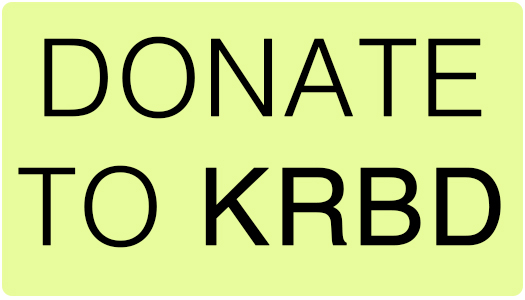
Ketchikan’s unhoused population will face a winter with fewer options for shelter, after funding for a temporary facility was vetoed.
The Ketchikan Borough Assembly approved $42,376 in funding to set up an overnight winter warming shelter for Ketchikan’s homeless residents at its regular meeting on Monday. This followed the City of Ketchikan voting unanimously last month to put a total of $66,000 towards the project. On Tuesday though, Borough Mayor Rodney Dial vetoed the Borough’s portion of the funding. Less than 24 hours later, Park Avenue Temporary Housing, also called PATH, the nonprofit that planned to operate the shelter, canceled their funding proposal.
The warming shelter was going to be at the First United Methodist Church on Main Street downtown, across from the courthouse and police station. PATH, which also runs a 26-bed homeless shelter on Park Avenue, planned to staff and operate the shelter overnight from November through March.
That was before Mayor Rodney Dial issued his veto letter.
“We’ve had to make the very difficult decision that we will not be able to stand up this program safely and efficiently this winter, and we hope in the future, next winter, to look at it again. But this year, we don’t see a possibility of that happening,” said Ty Rettke, PATH’s director.
In June, First City Homeless Services, the group that ran Ketchikan’s main 24/7 homeless shelter, First City Haven, disbanded and shut down the shelter. The group had been the center of Ketchikan’s heated debate about the city’s homelessness and downtown crime. In the letter announcing the closure, the Board wrote that “continual obstructive behavior” from the Ketchikan City Council led them to the difficult decision.
First City Homeless Services started providing an overnight warming shelter in 2017, after someone who was unhoused and sleeping outside froze to death.
Ketchikan’s current remaining resources for those suffering from housing instability are PATH, which is smaller and requires residents to have a state ID and be sober when they show up, and Women in Safe Homes (WISH), which serves survivors of domestic violence.
Now, with no low-barrier shelter options and winter approaching, warming shelter proponents say they want to avoid any other hypothermia or exposure-related fatalities among those sleeping on the street.
Dial stated that the veto was “to give the public additional time to consider this likely permanent change to the downtown area.” In his letter, Dial said it was “a misconception that the lack of warming shelters leads to individuals freezing to death.” He instead pointed to drug and alcohol use, as opposed to freezing temperatures, as the main culprit for exposure-related deaths.
Dial stated that increased intervention from the city will be more effective in preventing cold-weather casualties. He referenced the Mobile Integrated Health Unit, a new city initiative that provides additional emergency response support in the community. As part of the initiative, which is in its first year of operation, a van patrolling the city will provide healthcare resources to people living on the streets.
Dial’s veto letter also took exception to the proposed downtown location of the proposed warming shelter.
“Why would we put a low barrier shelter downtown surrounded by places to source drugs and alcohol?” Dial asked during comments at Monday’s Assembly meeting. He added that the last warming shelter in the downtown area resulted in “numerous economic hardships” for businesses, residents, and property values, and cost taxpayers and the tourism industry money.
“Numerous citizens reported over the years that the low-barrier shelter occupants increased property crime, fights, disturbances of all types, women were frequently accosted, people were afraid to go out at night, a historic building was burned down, a tourist was robbed, benches that had to be removed by the Borough, and many other complaints. Since the closure of the low-barrier shelter, businesses and citizens have reported significant improvements.” Dial said.
And finally, Dial expressed concern that since the proposed shelter would be privately operated by PATH, “it will be permanent, with likely permanent and increasing ‘asks’ for community funding.”
The proposed shelter drew mixed reaction from Ketchikan residents at Monday’s meeting, including some who were happy about the prospect of local governments funding the shelter.
“I can’t tell you how pleased I am that you, the Borough, are working together with the City to find solutions for our homeless. That means so much to our community, and I am just tickled pink,” Ketchikan resident Bobbie McCreary told the Assembly.
Others weren’t as “tickled pink.”
“I think you guys need to come up with a better idea at solving these problems, rather than – whatever. What, are you going to throw $100,000 at what? Feeding people? It won’t work,” said Hamilton Gelhar, a local business owner.
The veto split from other local government officials’ stances, too.
Assembly member Grant EchoHawk pushed back on the mayor’s position prior to the veto, especially what he said was the “implied causality” between a homeless shelter and drug use.
“The drug use that may be involved with some of the members of this population – not all – that didn’t stop just because the other shelter wasn’t available, it just spread out throughout the island. So what we may perceive as an improvement is simply just out of sight, out of mind,” said EchoHawk, adding that the warming shelter was a potentially stabilizing resource.
The Borough Assembly has the opportunity to override the veto at its next meeting. However, since PATH withdrew the funding proposal, no veto override made it to the agenda.
PATH’s director, Rettke, said it wasn’t necessarily the funding veto that killed the possibility of having a warming shelter this winter. It was the mayor’s letter and comments. According to Rettke, it isn’t easy finding staff for an overnight operation like this, due to the difficult hours and nature of the work, but he’d managed to find some promising prospects.
“The handful of people that I had discussed it with and that were very interested in working for us, once they read that and they saw the hostility and the negativity and what they felt like was uncertainty in that, the bulk of them pulled their applications,” Rettke said.
Rettke added he was worried that the mayor’s words and the swirling debate in the community had scared off more than potential staff, but also other prospective funders.
“Seeing a mayor write something like that that had so many factually incorrect things, and what I would call rhetoric and things like that, I knew that would hurt those opportunities, too,” Rettke explained.
In particular, Rettke claimed that Dial’s assertion that freezing was not the primary cause of death for exposure victims among Ketchikan’s homeless was a ‘factual inaccuracy.’
“You can be incapacitated in a nice, warm, dry place and not have a problem, but if you’re incapacitated in a wet, cold, windy place, you’re going to have a problem,” he said.
Rettke went on to call the decision to veto funds “heartbreaking.”
Rettke said he doesn’t believe Dial’s veto was done out of malice though, adding that the community shares the same problem, but sees different ideas of how to solve it.
“I think he truly believes that the things he said are true and that he’s making the decisions to help the community,” he said.“So it becomes incumbent on us that disagree with that, to find ways to educate and show where this is not the case.”
In response to backlash from his veto, Dial said on social media that this situation is “a perfect example of why so many communities have lost control of their downtown areas,” using Portland, Oregon as an example.
Rettke said that with the current capacity of resources for the unhoused going into this winter, he urged residents who see someone on the street who appears incapacitated or in need of assistance, to contact emergency services.








